PUREFORM
Australian Horse Racing
The Edge
We all want to be competitive in everything we do. And no more so that with punting on horse racing.
Success in punting on horses, in fact most things reduces down to an information war - the people with the best information make the smart moves.
Books have been and still are the best source of general information, and this applies at least as much in the art of racehorse selection and staking as in any other field.
Author Paul Segar has produced textbooks which cover all aspects of punting. The books alone stand as a complete reference but also provide 'food for thought'. You can develop / improve your own ideas as well as learn some new techniques.
Each book is written in plain English with plenty of practical examples in each chapter. Browse the contents of each book or email for further information, if required.
Improve your punting knowledge today - buy one or all of these
books.
Read the books but want more? It's time to do a course.
The Pureform Introduction Course uses a computer program to show you how and when to bet and how to do it successfully. Check out the details
The Benchmark Handicapper Course continues from the Introduction Course and gives you further weapons to apply when making quality value selections. More...
The Introduction to Dutch Betting using the Ratings Calculator Course gives you an introduction to betting using the Ratings Calculator computer software. More...
Buy all three books now:
$70 posted
Scam Watch

One thing every punter needs to be alert for is a potential online or phone scam. And I'm not talking about some tipping service trying to get you to subscribe or buy some report but a more insidious and nasty type of scam.
The government has been advertising one of its new initiatives: Scamwatch
Better safe than sorry and better safe than scammed is spot on.
It is part of the time-honoured Australian culture to spend your time and money on whatever you like. Getting scammed is not part of this culture. Check out the Scamwatch website for more information and report any nasty scams.
You may already be a master at spotting potential scams and even toy with the scammer for your own form of enjoyment. On the other hand, some tips and tricks can't hurt.
Scam Number 1
You might send an email to your own email address as a backup or for a "to do" list, but a sneaky scammer will send an email to you using your own email address.
To: mail@pureform.com.au
From: mail@pureform.com.au
Nothing better to start the scam than to use your own email.
Using your email address to appear as the sender is simple. Don't fall for this one when the sender says they have control of your email, system or whatever. They don't. Delete the email immediately without reading and do not click on any buttons, links, basically anything (the negative of the scammer using your email address is you can't block, ignore or send it to spam as then all emails sent to you will be quarantined in some format).
Scam Number 2
The image shows a weak scam scenario targeted at Pureform. The scammer attempts to have some authority over the website.
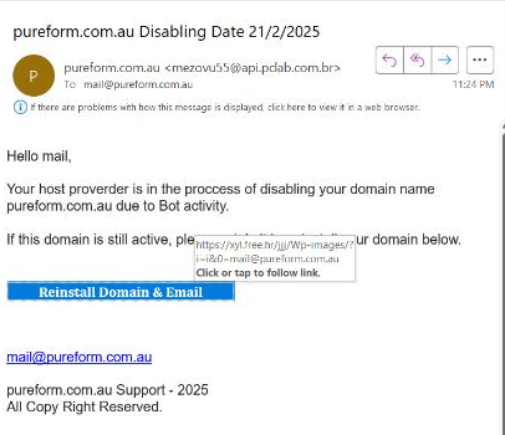
Most of the time you can put your mouse over a button, the Reinstall one, and the likely web address will show in the status bar at the browser bottom or in a popup.
The usual format is https:// which indicates a secure website. By itself, this means nothing. The next part xyl.free.hr is the Uniform Resource Locator (URL) or Uniform Resource Identifier (URI), take your pick on that, and indicates the website's name. It would have a better name if it was some domain registration or email provider service. Always look for the URL before clicking anything (a sub-domain is ok, eg. yahoo.com: finance.yahoo.com is conected to Yahoo, a website like finance.xyz.xr is not from Yahoo even though they might say they are).
Further features are the last lines including All Copy Right Reserved which basically mean nothing and the line is grammatically incorrect. Sure, some people can't spell but a standard email would be proof read.
This email: straight to ignore, block or spam.
NOT Recommended
This is highly NOT recommended, but you can look up the URL which is the part before any / symbol
xyl.free.hr
Check out the result:
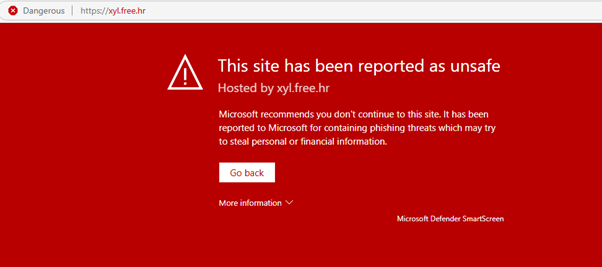
This worked out fine. Not even the biggest dumbo is going to proceed after seeing this. It is possible however, that your Defender or other protection may be disabled or some other problem.
Scam Number 3
Another rather convincing scam involved receiving a message which appeared to be from Facebook management. The gist of the message suggested immediate action was required.
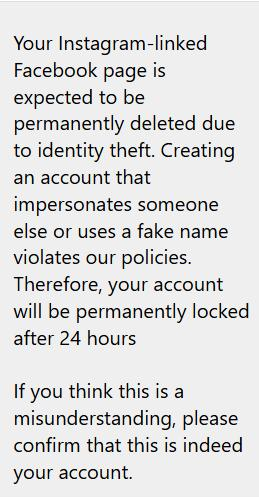
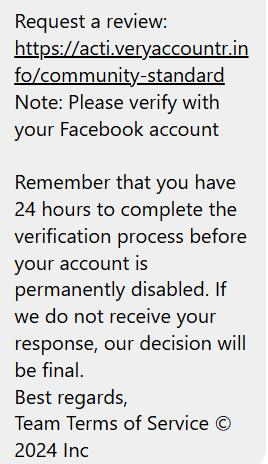
Note: Please verify with your Facebook account is the pointer to a potential scam along with missing punctuation and the 2024 date.
Checking the URL indicated the address was a scam at best, at worst, who knows. Loss of Facebook account and associated features.
Green Tick
When in doubt, use Google or whatever search engine to check the URL and look for the green tick:
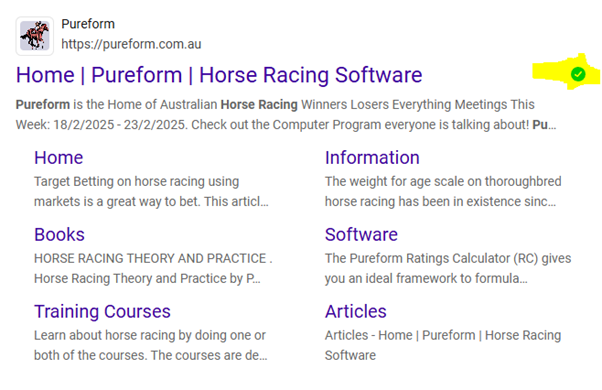
The green tick indicates the website has no malicious content. Might not select enough winners or losers but no ransomware or other nasties.
This same thinking applies to those 'Click here for a $100 Coles voucher' or similar lurk.
If it looks too good to be true, then chances are, it is.
When making online purchases, always use a company like PayPal that has some buyer protection and only use the family and friends' option for those beloved individuals. The wannabe scammer will ask you to void your buyer protection - don't do it.
Phones
Phone calls. Back in the day people used landlines and endless telemarketing companies would ring to entice you into purchasing steak knifes or the latest snake oil.

Today, the calls are more bogus with malicious intent.
Generally, don't answer interstate or overseas calls unless they are part of your normal life. Similarly, any calls that ask to choose a language should be deleted and blocked, not necessarily in that order.
Most genuine new callers will leave a message on the first or subsequent call.

It's easy to use a phone. Everything is there with a click of a button. Take photos, buy things, even make call. It's fast. It's easy. It's great.
Just be careful. Make sure if using a pin that it is a complex number not 1111 or 1234.
If you lose your phone, contact your phone company immediately. Bottom line: Don't lose your phone.
Make sure you protect yourself. That quick tap on a link or a button can be costly. Think about what you are doing is one quote regarding gambling. Do the same when confronted with that unknown email, advertisement or phone call.




